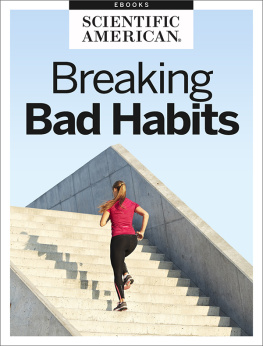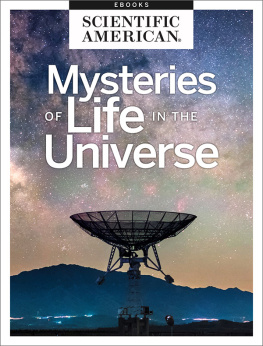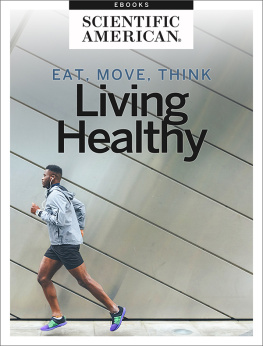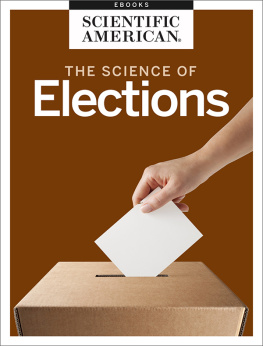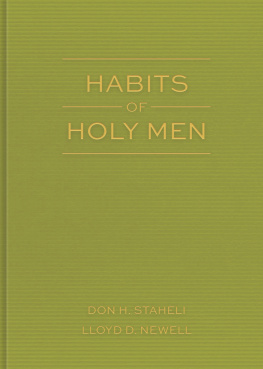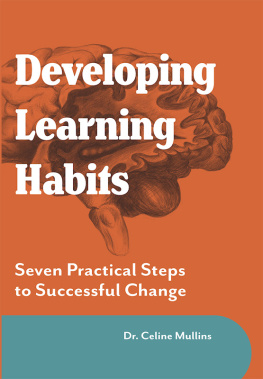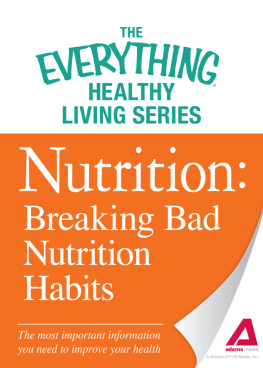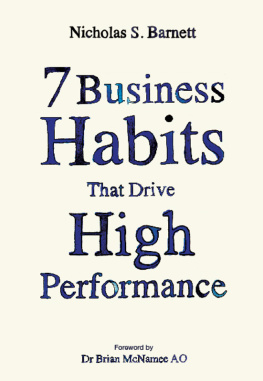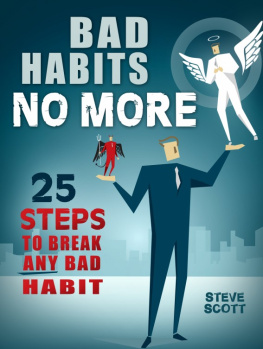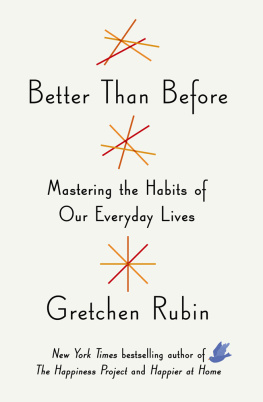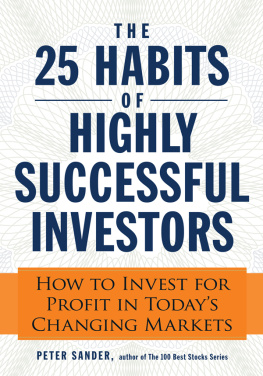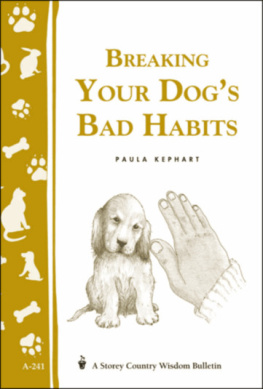Scientific American Editors - Breaking Bad (Habits)
Here you can read online Scientific American Editors - Breaking Bad (Habits) full text of the book (entire story) in english for free. Download pdf and epub, get meaning, cover and reviews about this ebook. year: 2022, publisher: The Rosen Publishing Group, Inc, genre: Politics. Description of the work, (preface) as well as reviews are available. Best literature library LitArk.com created for fans of good reading and offers a wide selection of genres:
Romance novel
Science fiction
Adventure
Detective
Science
History
Home and family
Prose
Art
Politics
Computer
Non-fiction
Religion
Business
Children
Humor
Choose a favorite category and find really read worthwhile books. Enjoy immersion in the world of imagination, feel the emotions of the characters or learn something new for yourself, make an fascinating discovery.
- Book:Breaking Bad (Habits)
- Author:
- Publisher:The Rosen Publishing Group, Inc
- Genre:
- Year:2022
- Rating:4 / 5
- Favourites:Add to favourites
- Your mark:
- 80
- 1
- 2
- 3
- 4
- 5
Breaking Bad (Habits): summary, description and annotation
We offer to read an annotation, description, summary or preface (depends on what the author of the book "Breaking Bad (Habits)" wrote himself). If you haven't found the necessary information about the book — write in the comments, we will try to find it.
Scientific American Editors: author's other books
Who wrote Breaking Bad (Habits)? Find out the surname, the name of the author of the book and a list of all author's works by series.
Breaking Bad (Habits) — read online for free the complete book (whole text) full work
Below is the text of the book, divided by pages. System saving the place of the last page read, allows you to conveniently read the book "Breaking Bad (Habits)" online for free, without having to search again every time where you left off. Put a bookmark, and you can go to the page where you finished reading at any time.
Font size:
Interval:
Bookmark:

BREAKING BAD (HABITS)
From the Editors of Scientific American
Cover Image: Jakob Helbig/Getty Images
Letters to the Editor
Scientific American
One New York Plaza
Suite 4500
New York, NY 10004-1562
or editors@sciam.com
Copyright 2017 Scientific American, a division of Nature America, Inc.
Scientific American is a registered trademark of Nature America, Inc.
All rights reserved.
Published by Scientific American
www.scientificamerican.com
ISBN: 978-1-4668-5895-4
Scientific American and Scientific American MIND are trademarks of Scientific American, Inc.,
used with permission.


BREAKING BAD (HABITS)
Finding Happiness through Change
From the Editors of Scientific American
Table of Contents
Introductionby Jeanene Swanson
Section 1
1.1
by Elaine Fox
1.2
by Steven M. Southwick and Dennis S. Charney
1.3
by Emily Laber-Warren
1.4
by Emily Anthes
1.5
by Tori Rodriguez
Section 2
2.1
by David DiSalvo
2.2
by Hal Arkowitz and Scott O. Lilienfeld
2.3
by Wray Herbert
Section 3
3.1
by David Biello
3.2
by Trisha Gura
3.3
by Sandra Upson
Section 4
4.1
by Katherine Harmon
4.2
by Melanie Bauer
4.3
by David H. Freedman
4.4
by Wray Herbert
4.5
by Wilhelm Hofman and Malte Friese
4.6
by Karen Schrock Simring
Section 5
5.1
by Jason Castro
5.2
by Amishi P. Jha
5.3
by Michael Wiederman
Section 6
6.1
by Ingrid Wickelgren
6.2
by Katja Gaschler
6.3
by Marina Krakovsky
6.4
by Maja Storch
Section 7
7.1
by Charles Q. Choi
7.2
by The Editors
7.3
by Suzann Pileggi Pawelski
Achieving Happiness through Personal Change
Self-improvement is a lifelong quest. We all have things wed like to change about ourselves; and often, those things are part of an established behavior pattern old habits that no longer serve us or are doing more harm than good. As the New Year approaches, the editors of Scientific American offer an eBook on breaking bad habits and the ultimate satisfaction of making difficult life changes. We hope that it will not only help you keep your New Years resolutions, but also master new habits to form the foundation of a new and happier you.
Even when what you're trying to change sounds like simple, for example "eat more vegetables everyday," personal change, especially to ingrained behavior, is difficult. Change is, after all, in the mind, as we discuss in Section 1. Elaine Fox writes in The Essence of Optimism that negative thinking causes undue stress and that by reversing this habit, we could beat depression, anxiety and substance use disorders. Another story adds to this idea of building resilience against stress; in Ready for Anything, authors Steven M. Southwick and Dennis S. Charney say we should change our idea of adversity, maintain close friendships and continually tackle new challenges. Another story by Emily Anthes talks about several relatively simple ways to boost your brainpower. In Section 2, Mastering Good Habits, a story by Wray Herbert titled The Willpower Paradox addresses exactly how we can begin that processsurprisingly, if we keep ourselves open to failing instead of willing ourselves not to fail, we are more likely to succeed.
The next two sections focus on procrastination and self-disciplinetwo sides of the same coin. While the desire to procrastinate seems to be hard-wired into our species, putting off importanthowever disagreeabletasks can negatively affect work, school, relationships and health, to name a few. Yet while certain personality traits like impulsiveness and low self-esteem can lead people to put things off, we can all break the habit, says Trisha Gura in Ill Do It Tomorrow. In another story, Prodding Our Inner Sloth, Sandra Upson argues that learning how to regulate our negative emotions and inner critic will help chronic procrastinators change their ways.
Impulsivity, or a lack of self-discipline, might be based upon the amount of dopamine our brains produce, but there are a number of ways we can defend against a desire to seek immediate gratification. Several stories give sound advice, including imagining a more detailed futuresuch as what would our future self do and feel if we keep up our bad behavioror partnering with a more self-disciplined person, like a workout buddy. Two stories tackle overeating specifically, and in one by Karen Schrock Simring, Accidental Gluttons, she lays out the argument for food addiction and ways to treat it.
The next two sections touch on how being fully present in the moment, called mindfulness, can make us happierand more productive. Section 5 tackles this topic most specifically, and includes one of our most popular articles on the topic: Being in the Now by Amishi P. Jha. Section 6 discusses tips for self-improvement, many of which involve focusing on the present. In Make Yourself Happy, Maja Storch advises on how to become more aware of those little moments that provide joy. Meanwhile, Katja Gaschler points out in Power of the Pen that writing about negative experiences can help us heal and move on. Finally, in Section 7, we close with a discussion of those elusive New Years resolutions and make lasting personal change, whether that involves cutting back on drinking and smoking, losing and keep off weight, exercising more or keeping the romance alive with your partner or spouse.
Now, go out and be well!
Jeanene Swanson
Issue Editor


The Essence of Optimism
by Elaine Fox
When I was a 14-year-old in a suburb of Dublin, we were at the height of the Troubles. During this period of civil unrest, our school regularlytook in girls from Northern Ireland to get them away from the bomb blasts and shootings in Belfast, some two hours drive across the border. One of these girls was named Sandra, and she had been at our school for a couple of weeks when one day the two of us decided to walk home for lunch. As I was walking and chatting, I suddenly became aware that Sandra was no longer beside me.Looking around, I saw her about 10 meters back, lying flat on the pavement. A car had backfired,and she had instantly thrown herself on the ground. Deep in her brain, an alarm signal had gone off. That same signal had slipped past me unnoticed.
How we interpret the events in our lives determines their significance to us. Often these incidents are ambiguous: they may represent a threat, as in gunfire, or they may be neutral, as in a car backfiring. Our responses reveal something deeperabout the way our brain analyzes what is happening around us. To a mind sculpted by a violent and dangerous environment, a loud bang is highly salient.
Ambiguous situations crop up all the time, particularlyin the social world. Perhaps your boss rushes past you one morning at the office. Her brusque demeanor could signalthat she is annoyed with you, or it could mean she is runninglate to a meeting. New research tells us that subtle, subliminalbiases in interpreting such events can affect our life trajectory. Through some combination of genetics and personalexperiences, we can develop a habit of seeing the proverbial glass as either half full or half empty. Thatframe of mind in turn alters our resilience to adversity,for better or worse.
Font size:
Interval:
Bookmark:
Similar books «Breaking Bad (Habits)»
Look at similar books to Breaking Bad (Habits). We have selected literature similar in name and meaning in the hope of providing readers with more options to find new, interesting, not yet read works.
Discussion, reviews of the book Breaking Bad (Habits) and just readers' own opinions. Leave your comments, write what you think about the work, its meaning or the main characters. Specify what exactly you liked and what you didn't like, and why you think so.

